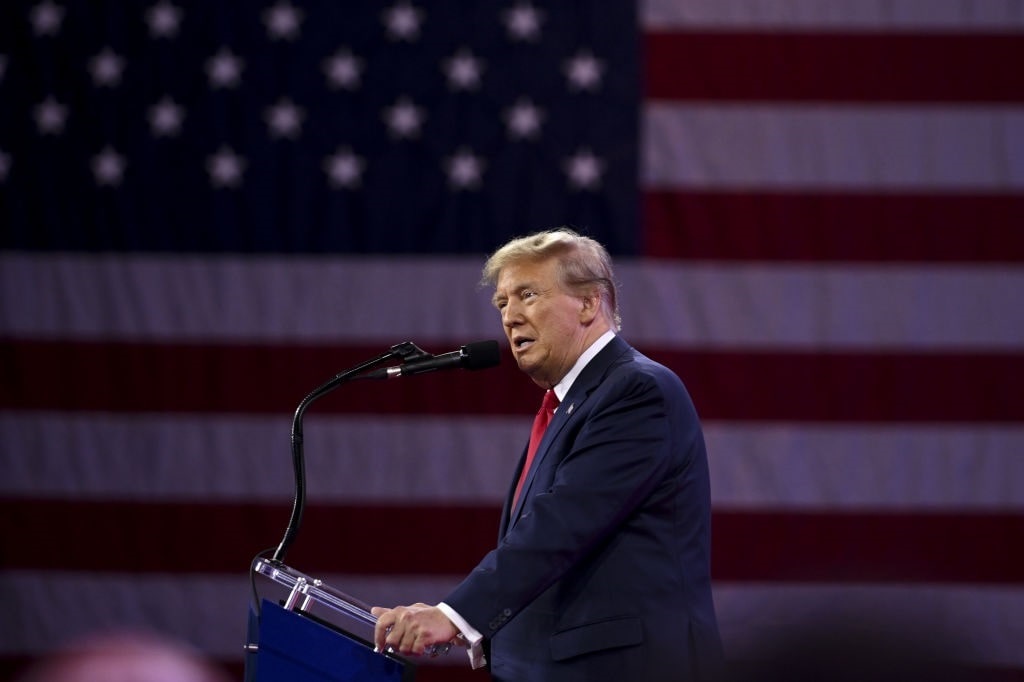Today, March 2, both Idaho and Missouri will hold their Republican caucuses to decide who will represent them in the 2024 big show. While many primary contests contain at least some element of drama, these two states are almost certain to back former President Donald Trump. But what of the bigger picture? What of the March 5 Super Tuesday?
The main event on the primary calendar is just around the corner, and with it, the opportunity for candidates to lock down their nominations to within a near statistical certainty. For both Republicans and Democrats, 15 states and American Samoa will either primary or caucus. A decisive numeric victory will do more than just put the leading candidates within sight of the brass ring; it will also bring the winners some unique and timely benefits.

For Republicans, there are 874 delegates on the table. President Joe Biden hopes to clean sweep the 1,420 at stake in his party. Even with the early primary states’ totals included, neither candidate will be able to officially reach the delegate majority, but they may certainly gain enough to make any challenge all but impossible.
But before the big show comes two states with their Republican caucuses – an appetizer before the main.
Trump’s Own Private Idaho
Thirty-two delegates are up for grabs in Idaho today in a contest that very nearly didn’t happen. State legislators – in an apparent effort at efficiency – decided last year to consolidate the presidential primary with that for state and local officials. Lawmakers canceled the March primary but neglected – seemingly by mistake – to actually move it. Thus, the contest will be a caucus event.

Donald Trump (Photo by Celal Gunes/Anadolu via Getty Images)
Idaho is an extremely pro-Trump state. In the 2020 election, Trump beat Joe Biden by 30 points, a similar margin to his 2016 win over Hillary Clinton. Although the 2016 primary nod went to Texas Senator Ted Cruz, the Gem State has been a solid supporter of The Donald since he first won the presidential nomination.
Some states are attempting to ditch Donald Trump from the ballot altogether (notably Maine, Colorado, and now Illinois), some are waiting to see what the Supreme Court says about these early “test” cases, and others look on in shock and write amicus briefs in support of the former president. And then there’s Missouri.
The state’s top election official, Secretary of State Jay Ashcroft, warned of dark days ahead if Trump remains struck from the ballots. On January 5, he wrote on X:
“What has happened in Colorado & Maine is disgraceful & undermines our republic. While I expect the Supreme Court to overturn this, if not, Secretaries of State will step in & ensure the new legal standard for [Donald Trump] applies equally to [Joe Biden].”
Missouri Breaks – for Trump?
The last time Missouri chose a Democrat for president was Bill Clinton back in 1996 (although John McCain came to within 4,000 votes of losing to Barack Obama in 2008). It was long a state that swung in presidential allegiance, but more recent years have seen this support turn solidly red.
In 2016, Trump defeated Hillary Clinton by over half a million votes, a margin of 18.5%. the 2020 election saw his margin drop to 15%, but his vote total and final percentage both rose.
But what of the caucus? Well, what little polling there is in this race suggests that Trump has a landslide in the cards.
Republican Super Tuesday Status
Between now and the Republican Convention in Milwaukee this June, the winning candidate must have secured at least 1,215 of the 2,429 available. The 874 up for grabs today represents 36% of the total, making it the single largest harvesting opportunity. From the early voting states, former President Donald Trump has so far accrued 122 with his only other competitor, Nikki Haley, sitting on 24.
If we take the first six primaries and caucuses held, Trump earned 75% of the delegates on offer. Should this pattern hold, he can expect to rake in around 650 of Super Tuesday’s bumper crop. That would put him at roughly 770, just 445 shy of a majority with 1,358 delegates left – Trump would need to win just 32% of those to claim the nomination.
The Lockouts
With only Rep. Dean Phillips (D-MN) still in the race against Joe Biden, the current president is in a solid position to make his lead unassailable on Tuesday. He has 206 delegates in the bag and will – if past is indeed prologue – win just about all of the 1,420 on the table, giving him a potential 1,600 plus delegates. That leaves Biden just over 300 short of the prize, a sum he is sure to achieve – after all, he will only need to win around 15% of the remaining delegates between now and the August Democratic Party Convention in Chicago. But, of course, being the incumbent president, he is already considered the presumptive nominee by his party; the delegates just make it official.
For Donald Trump, the hill is a little steeper to climb, though not by much. There are a little over 700 delegates up for grabs this month besides those being dished out on March 5. Even pulling in just 62% of the March contests should be enough for him to close this down before April.
Both presidents are not only looking for a numeric victory this coming week, but for wins so persuasive that the talk of alternative candidates becomes a thing of the past.

